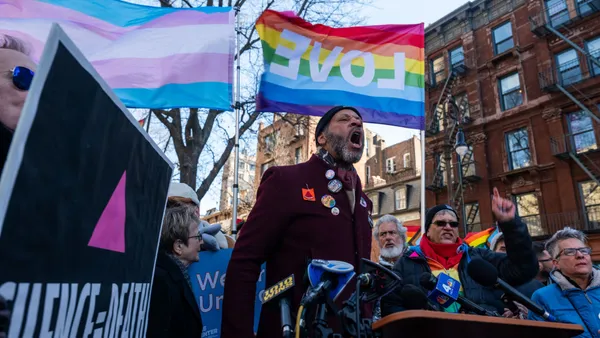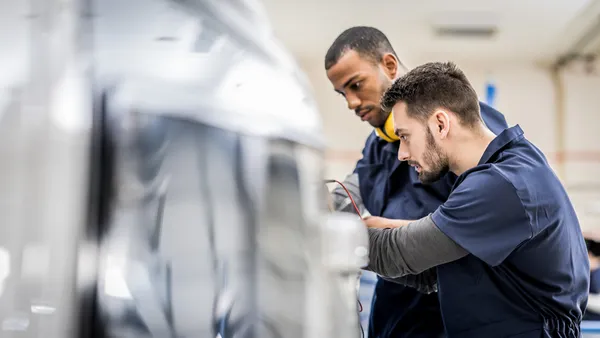A majority of employed U.S. adults — about 56% — say that focusing on increasing workplace diversity, equity and inclusion (DEI) efforts is a good thing, according to a May 17 report from the Pew Research Center.
However, specific opinions about DEI initiatives, including at someone’s own workplace, appear to vary across demographic and political lines.
“The survey comes at a time when DEI efforts are facing some backlash and many major companies are laying off their DEI professionals,” Rachel Minkin, a research associate focused on social and demographic trends research at Pew, wrote in the report.
In a survey of more than 5,900 U.S. workers, about 61% said their company has policies that ensure fairness in hiring, pay or promotions, and 52% said they have trainings or meetings around DEI at work. However, only 33% have a staff member who promotes DEI, 30% have a workplace that offers salary transparency, and 26% have affinity groups or employee resource groups based on a shared identity.
In addition, a relatively small share of workers seem to place importance on diversity at their own workplace. About a third of respondents said it was extremely or very important to them to work somewhere with a mix of employees of different races, ethnicities or ages. About 26% said it was important to have an equal mix of men and women, and 18% said the same about a mix of workers with different sexual orientations.
Along with this, about 54% of workers said their company pays the right amount of attention to increasing DEI. Black workers were more likely than those in other racial and ethnic groups to say their employer pays too little attention to increasing DEI, and they were also among the most likely to say that focusing on DEI at work is a good thing. White workers were the least likely to express this view.
At the same time, women were more likely than men to value DEI at work. About 61% said that focusing on increasing DEI at work is a good thing, as compared with half of men. Larger shares of women also said it’s extremely important to work at a place with diversity in relation to gender, race, ethnicity, age and sexual orientation.
About half of workers said it’s extremely important to them to work somewhere that is accessible for people with physical disabilities. A majority of workers — including 76% of those who don’t have fully remote schedules — said their workplace is at least somewhat accessible for people with physical disabilities.
Overall, though, wide partisan differences exist in views of workplace DEI. About 78% of Democratic and Democratic-leaning workers said that focusing on DEI at work is a good thing, as compared with 30% of Republican and Republican-leaning workers. Democrats were also far more likely to value different aspects of diversity in the workplace. In addition, by wide margins, higher shares of Democrats said the policies and resources related to DEI at their workplace have had a positive impact.
These trends will likely become even more noticeable as the next election season approaches. As politicians in some states — particularly with legislation in Florida and a notable governor’s memo in Texas — make moves to limit DEI programming at private companies, HR leaders and senior executives will need to be aware of the latest issues that may affect their organizations.
Sometimes the differing opinions may stem from leadership as well. C-suite endorsement of companywide DEI efforts seems to be decreasing, according to a recent report, and some companies are beginning to drop DEI programs. This could have major implications for employee engagement, inclusion and belonging in the workplace this year.













